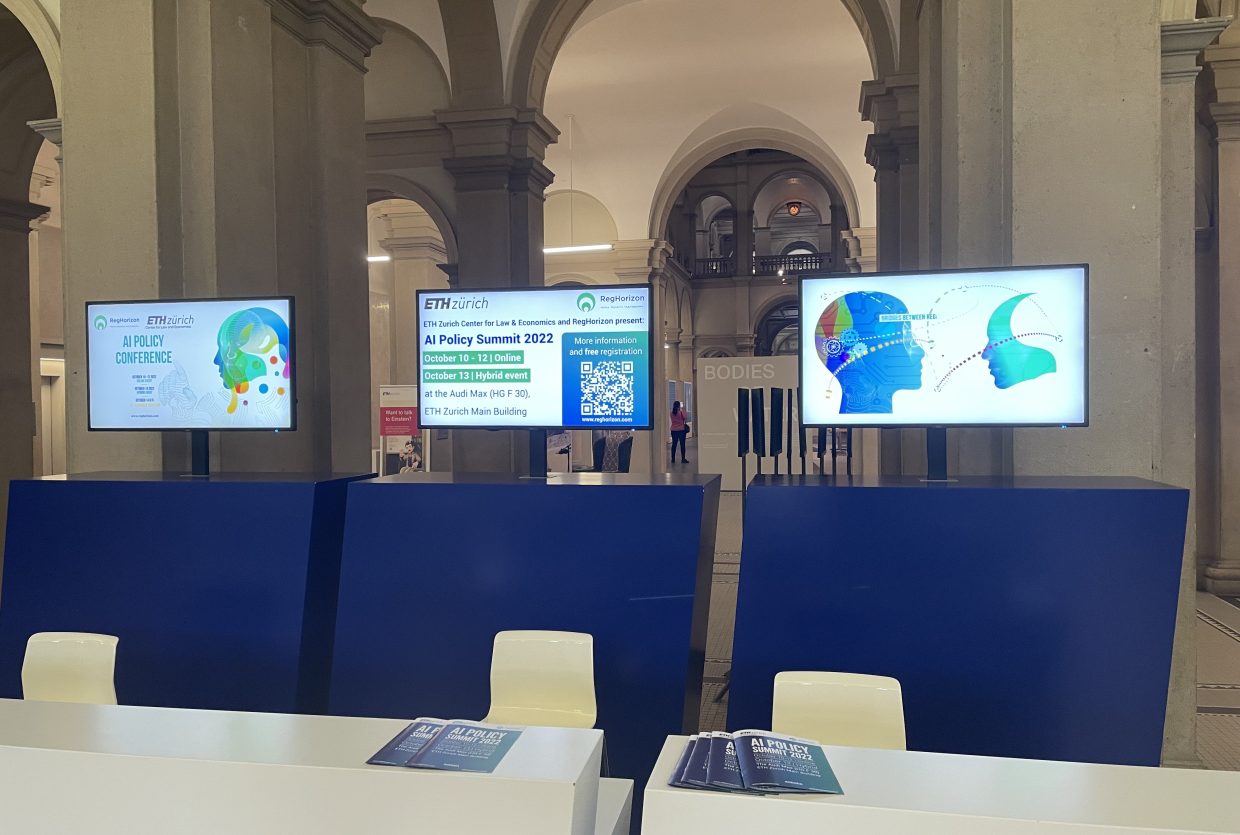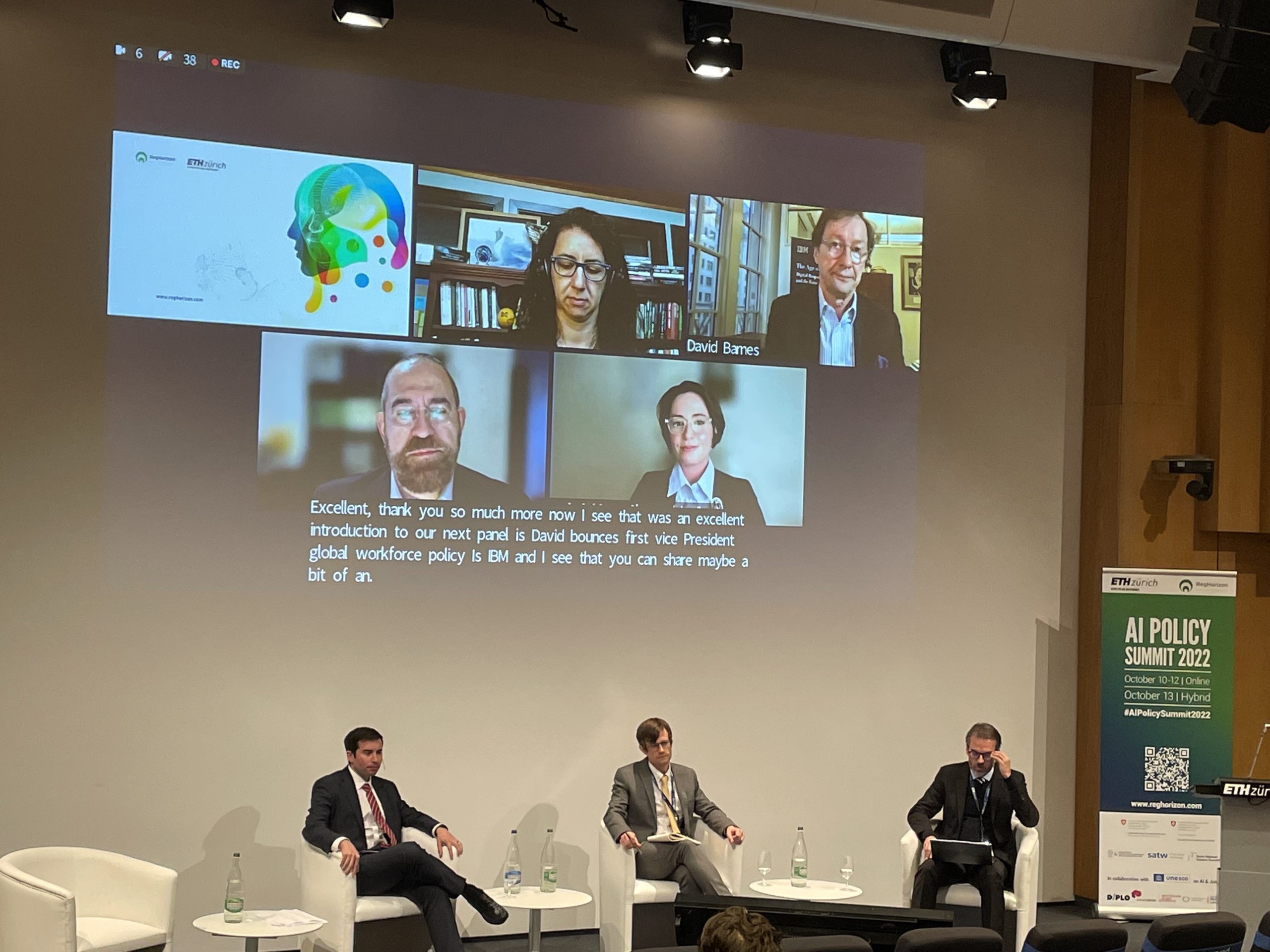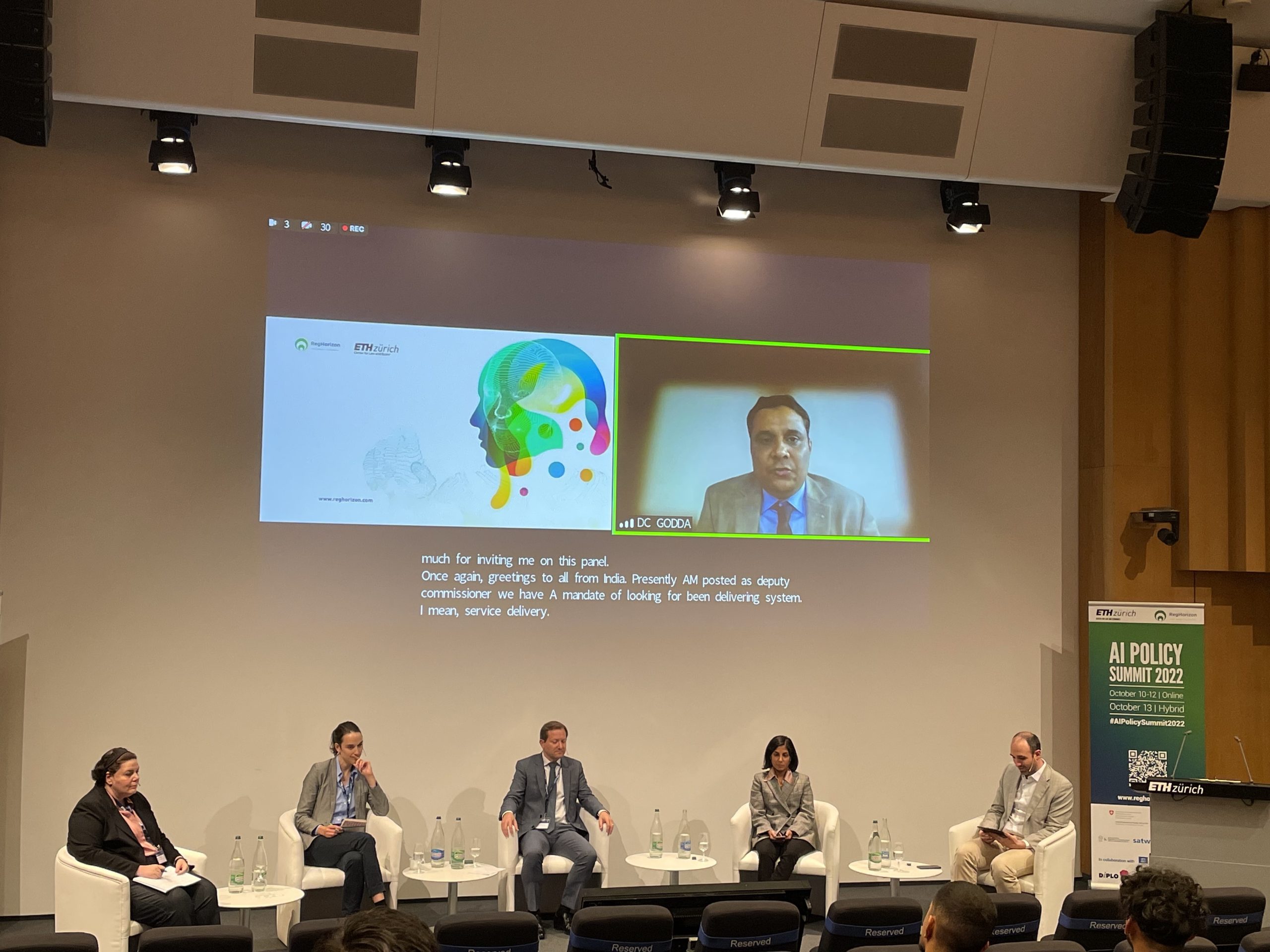AI Policy Summit 2022
Nicolas Zahn • October 2022

From October 10 to October 13 the AI Policy Summit took place again, this time as hybrid event at ETH Zürich.
The international conference brought together experts and initiatives from around the globe to discuss impacts of Artificial Intelligence and provided an opportunity for the Swiss Digital Initiative to share our work with an international audience.
Artificial Intelligence is a key digital technology and raises complex questions for technologists and policymakers. Luckily, the AI Policy Summit 2022 not only provided enough time to shed light on various aspects but also included a diverse group of presenters and stakeholders from around the world.
The key themes this year were: Building bridges between regions and stakeholders; AI and democracy;AI and justice; and AI and the future of work. The opening day of the conference also provided the opportunity to present Swiss highlights and the Swiss Digital Initiative is very humbled that we could present our work to an international audience as part of this segment of the conference and have subsequently received welcome feedback from participants on our projects, in particular the Digital Trust Label.

We also listened to the discussion on AI and the future of work as well as the panel on building bridges for AI governance. In our work, we very much identify with the theme of building bridges since as a multistakeholder initiative we also try to bring together various experts to create meaningful impact. And the future of work is a rapidly growing field of using AI solutions that raise complex ethical questions where our projects can help to raise awareness and introduce some much needed transparency as well as providing guidance for the responsible use of such digital services.

The first panel featured Commissioner Keith Sonderling (EEOC, USA), David Barnes (IBM), Matthew Forshaw (Alan Turing, UK), Mona Sloane (NYU), Merve Hickok (CAIDP, USA), Jose Escamilla (Institute for the Future of Education, Mexico) and was moderated by Dr Ekkehard Ernst (ILO, GemLabs). The main points focused on the fact that the debate needs to pick up speed as AI solutions are increasingly used throughout all aspects of the HR work. At the same time, the panel cautioned that we are in need of a better understanding and definitions of relevant terms when it comes to regulating AI and that we need to be aware of the different contexts, from politics to culture. There was also large agreement that education and digital upskilling of the workforce as well as decision-makers and technologists is key.

The second panel picked up the baton and moved from the analysis to a more policy-oriented discussion. It featured Amb. Roger Dubach (Swiss Federal Department of Foreign Affairs), Zeeshan Qamer (Government of India), Golestan ‘Sally’ Radwan (Government of Egypt), Arti Garg (Hewlett Packard Enterprise), Rahel Estermann (Green Party, Switzerland) and was moderated by Filippo Lancieri (ETH Zurich). Drawing on their collective experiences in closing gaps between different stakeholder groups and the fact that efforts to regulate AI from companies setting certain internal policies all the way to legally binding international treaties, the panel made the following points:
- Coordination and exchange between different initiatives is key, especially with the amount on regulatory discussions going on at the moment.
- Building bridges across disciplines and stakeholder groups is key but also challenging: diverging perspectives, lack of common vocabulary etc make the collaboration difficult. Patience and persistence is required to harness the potential of interdisciplinary work.
- Building bridges across different regions is equally important. AI and other digital technologies are seen very differently around the world. Whereas Europe might focus on regulating perceived negative side-effects of AI applications, African countries are more interesting in harnessing the potential of AI to leapfrog economic development and address potential challenges later on.
In summary, the AI Policy Summit provided a comprehensive overview of the current debate on artificial intelligence around the globe. While it was very inspiring to see all the work that is already going on it is also clear, that a long road lies ahead.